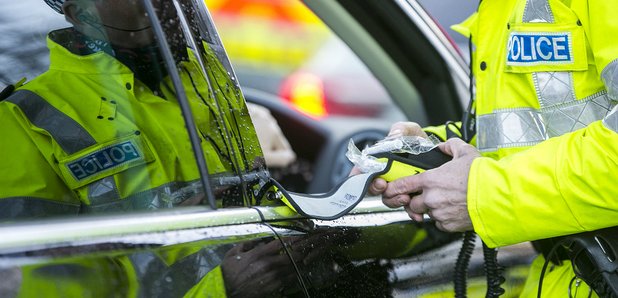On Air Now
Heart Breakfast with Des Clarke and Jennifer Reoch 6:30am - 10am
19 February 2019, 06:38

A new zero-tolerance limit for drug-driving and the introduction of roadside testing is to be considered by MSPs.
It would see limits set on eight drugs most associated with illegal use where any claims of accidental exposure can be ruled out.
Drugs associated with medical use would also have limits based on impairment and risk to road safety.
Community safety minister Ash Denham will give evidence to the Scottish Parliament's Justice Committee on Tuesday morning.
If approved, the new limits will come into force on October 21.
She said: "Once these new regulations are in place, Scotland will have the toughest criminal law approach on drink and drug-driving in the UK with the lowest drink-driving limit and drug-driving limits through this new offence.
"Drug-driving is completely unacceptable, and we will continue to use all of the tools at our disposal to prevent the avoidable deaths and damage caused by those who drive under the influence of drugs.
"We hope the new offence will act as a clear deterrent for those who may wish to take drugs and drive."
The UK Government's Crime and Courts Act 2013 made "driving or being in charge of a motor vehicle with concentration of specified controlled drug above specified limit" an offence.
While the penalties for drink or drug-driving are reserved to Westminster, providing specified limits for drugs is a devolved matter.
The drugs proposed to have a zero-tolerance limit are benzoylecgonine, cocaine, cannabis and cannabinol, ketamine, LSD, methylamphetamine, MDMA/ecstasy, and heroin and diamorphine.
Medicinal drugs with impairment-based limits would be clonazepam, diazepam, flunitrazepam, lorazepam, methadone, morphine, oxazepam and temazepam.
Those taking medication as part of a prescription can claim medical defence with any new ruling, but would still be prosecuted under the existing impairment offence.